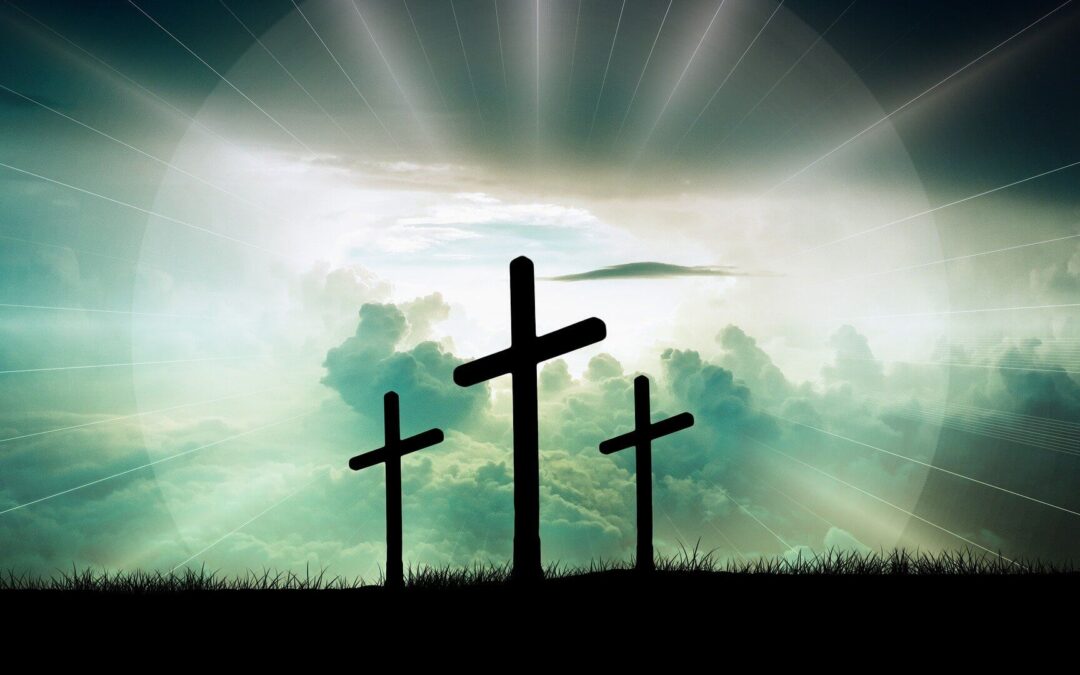Rarely a Breaking of Bread passes without these words being quoted. Many of our hymns quote them verbatim, worshiping God for a completed work. Legions are those who have come to Christ and salvation by reason of these words. We are frequently reminded that in the original language, His cry was actually only one word. The “tetelestai” has been interpreted to mean, “paid in full,” “a debt has been canceled,” and “a completed deed.” “Papyri receipts for taxes have been recovered with the word tetelestai written across them, meaning ‘paid in full’.” And while we exult in a Finished Work, even more is couched within this sixth and triumphant cry from Calvary.
It Reveals His Omniscience
Who else could possibly know what the throne of God demanded in propitiation for sin? Who else could possibly measure the amount of suffering which totally met the demands of righteous judgment? Who else could know when the work was finally finished? He alone knew sin’s affront to the Throne and character of God; He alone could measure what was needed to atone for it. Who else could know, when in the unseen world of God’s moral justice, sin had been put away?
It reveals His omniscience of the Word of God. He knew when every Scripture had been fulfilled; when every prophetic passage concerning His sufferings had been fully completed. “Finished” meant that the promises of God concerning salvation had been fulfilled.

It Reveals His Accomplishment
Here is the only Man Who ever fully accomplished everything which God had for Him to do in His life. There were no omissions and no partially accomplished deeds. “Finished” meant that the will of God He had come to accomplish was perfectly done. This was not a boast, so much as a shout of joy that He had been able to glorify His Father by accomplishing His will. His “meat” was to do the will of His Father (John 4:34). What joy must have filled His heart as He cried, “Finished!”
His Father had been glorified! The throne of God had been vindicated. God’s character, called into question by Satan in the Garden in his insinuations to Eve, had been shown to be righteous, loving, good, and kind.
It Reveals His Power
John tells us that Jesus said, “Finished,” and that He then bowed His head and delivered up or handed over His spirit. He did not whisper or gasp out His last words. In fact, the next and last cry is with a loud voice. It must have startled the soldiers and those at the foot of Calvary to hear a man suspended for hours on a tree, under the glaring and searing eastern sun, to be able to cry out. Did the previous cry, I thirst,” afford the liquid to moisten the parched tongue (Ps 22) to enable the clear and distinctive cry for all to hear? How wonderful that the words are recorded on the page of Scripture.
With dignity and total composure, we read that “He bowed His head.” It is often pointed out that the word used here for “bow” is the same as the Lord used when He said that “the Son of Man hath not where to ‘lay’ His head” (Matt 8:20). His work complete, the divine will accomplished, there was now a place to “lay” His head, even if it be a cross.
Consider:
- Take each of the three words in our A. V. of the verse: “It is Finished” and just think about what each points to – the noun, the verb, and the adjective all convey wonderful truths.

